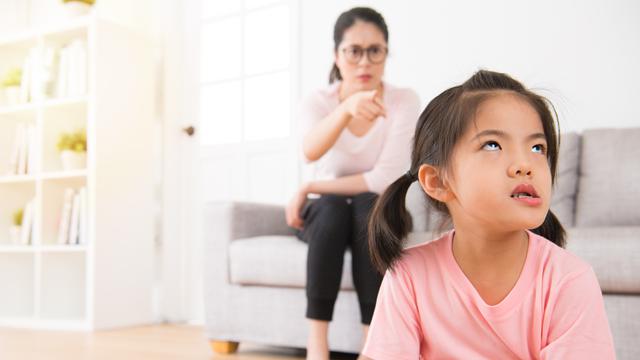
Parents must be aware – Most parents certainly already know that being a parent is not easy. As human beings, parents can also make mistakes. However, it is never too late for every parent to change parenting patterns that are considered flawed. That’s what Brynn Burger, a mother who also works as a teacher, said.
Many parents are not aware. In recent decades, few parents heal their children, so it takes a lifetime of therapy. Of course, we don’t want that to happen. We, as parents, want to raise our children without getting hurt so that children do not need recovery in adulthood.
Parents who raise their children in powerful ways only lead to their adult life heading to the brink of destruction. What children need is a positive attitude from parents and appropriate for children.
When you become a parent, you don’t receive an instruction manual or an explanation of each child’s expectations. Every child, even in the same household, may need different things from different parents, and this can be not easy to direct
So what are the teachings of parents that can poison the lives of children? Here are some signs that your parents are crossing emotionally toxic territory and can be done.
1. Children are not adults
We often do not realize, treat children as if they are adults. Sometimes parents like to give family responsibilities to their children, like asking his 7-year-old son to supervise his 5-year-old sister after school until the afternoon.
The solution to change it, can you remember how it was when you were raised? Did your parents ask you to do work beyond your age?
You don’t need to imitate what you experienced as a child. When you realize that the applied parenting pattern is not correct, try changing it.
Someone can trust an 8-year-old child to take care of his younger sibling. But, at that age, don’t expect your child to think like an adult. Brynn said parents should not make their children nannies or housekeepers outside of their daily work.
In addition, children should not listen to conversations about inappropriate adult topics. For example, about household financial difficulties, parental relationships are not harmonious. Children are not parents’ shoulders to cry on, and a trusted adult friend should fill that role.
2. Parents make children feel guilty
What teachings do you always teach your children? Be kind to others and do things as we would like from others. Isn’t that right?
But what about when parents do that for their children? Do we expect anything in return? Do we make them feel guilty about actions or situations beyond their control?
For example, when your child wants to go to a football game, you are lonely. You tell the kids it’s okay to go, But you also say, if the kids need you, you’ll always be at home for them. These words can make children feel guilty.
So what can you do? First, apologize to the child. If your kids are old enough to understand that you’re used to doing things like this with them, try saying you’re sorry.
Parents must be aware of this mistake not to hurt the child

3. Angry children in public
Children also have feelings, and nagging them in front of so many people will leave scars for the rest of their lives.
A child acts all day at his grandmother’s house at family events. The child may get angry by shouting and throwing anything on the floor. At that time, parents could immediately get angry by speaking in a high voice, “Mom is furious! Mother is angry. Is this what you want, son?”
Brynn said he had. Her son was angry for three hours. At that time, he wanted to get angry, shout or hit his child. But he realized that making fun of children could be embarrassing and hurt his self-esteem in front of others.
Children at any age understand that being angry is not appropriate. We as parents also often remind our children not to do the same thing to their friends.
If you are already angry, the first thing you need to do is apologize, and you need to explain that our behaviour is inappropriate and just tired. In addition, you can ask your husband, trusted friend, or other family members to remind yourself of this when you are emotional.
According to Roseanne Lebsack, Director of the Child Psychology Clinic at Nova Southeastern University, shouting wildly inappropriate words conveyed to children can hurt their feelings.
Therefore, Roseanne emphasized that parents need to apologize to their children for their actions. But still, we’ll tell you why you’re angry like that to your child.
4. Asking children to keep secrets
Our children are not our friends. It doesn’t matter how much we love our children or how young we have them until the baby grows up. Parents cannot be friends with their children, and this will damage the mentality of one or both parties.
For example, you tell your child about spending too much money and ask your child to keep it a secret from dad.
As parents, says Brynn, we can be children’s confidants. But children can’t digest our information yet. According to Brynn, no matter how old a child is, they don’t need to hear their parents’ secrets.
5. No age limit
The use of smartphones social media now knows no age. But remember, children’s brains are still developing, and they can’t make mature decisions when faced with something.
For example, your child, who is still 12 years old, wants to play games on the internet. At the same time, you want to take a break, so you allow it. You may find it challenging to manage parental controls on the game system, but a teenager can already see anything when chatting with other people playing games online. Unfortunately, most of them are probably older than your child’s age.
What parents need to do is when we admit we crossed the line, try to apologize. It will be helpful, regardless of age, to make the child feel important to the parent.
“Think about whether you are comfortable with what the child is doing. You are the parent.”
Speaking of apologies, Julia Colangelo, a licensed social worker in New York City, said that parents are role models for children. If we want the child to behave well, including apologizing when he makes a mistake, don’t be afraid to apologize to the child.
“At all ages, we want children to imitate what we do to other children and adults. Moreover, saying sorry when we did make a mistake can have a good impact on the child’s personal and social life. Therefore, parents should not hesitate to apologize to their children, ” said Julia, quoted from Essential Baby.



